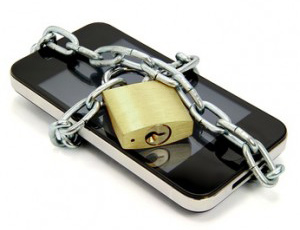 You tend to trust anyone you sleep with and many people have an inclination to sleeping with their mobile phones. There is this need and comfort to be with their smart phones everywhere they go that people forget the smart phones are computers. Thy have become targets for those with criminal intent such as internet fraudsters because securing them is often ignored.
You tend to trust anyone you sleep with and many people have an inclination to sleeping with their mobile phones. There is this need and comfort to be with their smart phones everywhere they go that people forget the smart phones are computers. Thy have become targets for those with criminal intent such as internet fraudsters because securing them is often ignored.
Mobile phones have become the means to transact payments online for daily chores like shopping. This leaves you vulnerable to online attacks. Statistics show that about one in three phone users have been hit by cyber criminals. In order to protect your data while using your smart phone, consider taking the following steps:
1. Addition of a password to your smart phone
About twenty-five percent of all mobile phones end up being stolen. It is, therefore, good to add a password to protect the data. It might feel like a hassle typing a number every time you need to use the phone. However, the pain of losing the phone with no password protection is much higher.
2. Use powerful passwords to secure the phone
The need for passwords on your smart phone is that it ought to be difficult to guess or crack. Owners have been known to use the same password for many sites. People also use passwords that are so easy to remember which means easy to guess. Do not use your mother’s maiden name, for example, since it will be so easy to figure out once a cyber criminal has your family tree.
3. Procure a professional “find my phone software”
There is special software available that enables you track and find your phone when you lose it. This makes it easy for someone to find you when they locate it. The software often comes with an option to lock and wipe clean your lost smart phone remotely should this be necessary.
4. Always use https rather than http in the URL
Https connotes an additional layer of security for the particular site you are browsing. Make use of it especially when you intend to exchange private data, such as credit card numbers, when shopping online.
5. Stop automatic connection feature on your smart phone
Most mobile phones have default features that automatically connect to any Bluetooth devices and Wi-Fi networks available. Once you disable this option, you are securing your phone from a connection and transmission of data without you realizing it or your permission.
6. You need to buy protective software
Crime against mobile phones is on the increase. Symantec claims that there was a fifty-eight percent increase in malicious software and malware targeting smart phones in 2013 alone. Malware steals your personal information and also damages your smart phone. To secure your phone, you have to buy a good anti-virus package. There is no other way around this danger.
7. Treat social media requests with suspicion
Cyber criminals often send friend requests to strangers to collect information about them. Many often reject these requests but should you habitually accept, then it is a matter of time before you become a prime target. A famous example online is a criminal impersonating your bank, favorite mall shop or restaurant asking for your credit card or bank account number. This is apparently in order to facilitate a refund for an alleged over-charge. Contact these enterprises directly always. That way, you and your smart phone remain secure.
8. Shop with savoir-faire using your smart phone
Any retailer or business vendor who initiates contact through your smart phone email, text message or even social media website should be treated with utmost care. This is especially where it comes to vendors you are not familiar with. It is not bad to shop using the phone either by retail app or browser but you have to ensure you are dealing with legitimate vendors. Run a search on the vendor before transacting, concentrating on complaints against the vendor.
Again, some vendors and their apps ask for too much information about you. Requests for location, permission to access your other apps or even your passwords should be triggers that you are about to defrauded. Avoid such vendors like the plague.
9. Be wary of the parcel tracing scam
Should you happen to make regular parcel orders using your smart phone, do not be surprised to get an email from an apparent big retailer on a parcel they fail to send. A closer look might reveal the email is different from the domain of the retailer. This fraud works by obtaining personal information from you when you click on a given fraudulent link. Do not attempt to clink on it but go to the main retailer and find out the real position.
Finally and in conclusion
The biggest problem when it comes to securing your smart phone is that they have become a very useful appendage to our daily lives. A huge influx of people has boarded the mobile phone environment including engaging in high-end and complex transactions. This is an unstoppable development, however, ensure you heed the security gurus’ advice and secure your smart phone.
